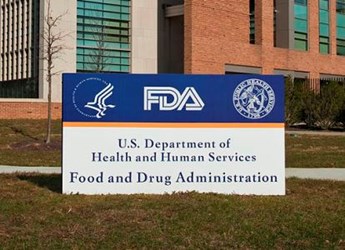FDA Touts Faster Med Device Approval Times
By Jof Enriquez,
Follow me on Twitter @jofenriq

The U.S. Food and Drug Administration (FDA) claims it has approved medical devices markedly faster in the last five years than in the preceding decade. The agency attributes the improvement to its decades-old mandate, as well as more recent actions designed to facilitate approvals.
"These improvements include those to 510(k) and premarket approval (PMA) review times along with a reduction in Investigational Device Exemption (IDE) review times of almost a full year — which means many devices investigated in the United States now reach the market a full year sooner than they did at the beginning of this decade. Performance in FDA's review of novel, moderate risk devices has also improved markedly, demonstrating the success of FDA's efforts to expand use of its de novo review pathway," states the FDA report.
The FDA says total times to decision for device submissions have been reduced as follows:
- 510(k)s: From 132 days in 2010, lowered 13 percent to 115 days in 2014
- PMAs: From 352 days in 2009, lowered 31 percent to 242 days in 2014
- IDEs: From 442 days, decreased by over a year to 30 days in 2015
- De novo requests: From 992 days in 2010, lowered to 300 days in 2014
FDA also reports that the percentage of approved 510(k)s rose from 73 percent in 2010 to 84 percent in 2014, while the percentage of cleared PMAs jumped from 59 percent in 2010 to 86 percent in 2014. Pending submissions for 510(k)s decreased by 30 percent, and for PMAs by 43 percent.
The regulator admits its own performance assessment of the decade between 2000 and 2010 revealed "a steady decline" of its premarket program.
"In response, the agency implemented a number of new policies and programmatic changes over the past five years to improve its performance and to adapt its oversight to the global marketplace and to new technologies. Added funding and increased capacity, as the result of the 2012 reauthorization of MDUFA, also helped reverse the direction of the agency's medical device premarket program," the regulator states in its report.
FDA credits the "basic framework for device oversight that was put in place almost 40 years ago" for the success of its performance improvements. In addition, FDA says it implemented key changes to its approval process recently, including:
- Starting a streamlined clinical trials program that encourages use of innovative methodologies, study designs, and early feasibility studies
- Recalibrating the benefit-risk framework in premarket reviews of high-risk devices to include patient input
- Introducing the Expedited Access Pathway Program for devices intended for patients with life-threatening conditions whose needs are unmet by current technology
- Implementing the Medical Device Development Tools (MDDT) program to support premarket applications with shorter clinical trials
- Proposing a National Medical Device Surveillance System (MDS), which requires manufacturers to mark devices with unique device identification (UDI) markers
- Reviewing patient registries to gather "real-world" data after devices are marketed
The FDA cites the use of registry data as crucial to its 2013 decision to expand indications for Edwards Lifesciences' SAPIEN transcatheter aortic valve replacement (TAVR) to also cover inoperable and high-risk patients who need their devices inserted through alternative access points, in addition to the original indication using access points through the artery in the leg or via the apex of the heart.
Statistics from PricewaterhouseCoopers (PWC) seem to support FDA's claims of improving approval times in recent years. According to RAPS, PWC data says that, as of 2012, FDA approved premarket approval applications (PMAs) in half the time (7 months) than it did just three years earlier, in 2009 (14 months).
FDA and device industry stakeholders contend that the slow regulatory process implemented by the FDA have driven away device developers and innovators to Europe, and limited the access of new medical technology to patients in the United States. AdvaMed, for instance, describes the current FDA regulatory process as “too time-consuming, too inefficient, and too inconsistent.” However, the FDA says its recent efforts are proving otherwise.
"FDA's device program has evolved alongside changes in medical technology and in the global marketplace. The agency has implemented several new policies and programmatic improvements to ensure American patients have timely access to devices without compromising standards of safety and effectiveness," states the FDA report.
A key legislation pending before the U.S. Senate, 21st Century Cures, could further relax FDA requirements to fast-track device approval times.
